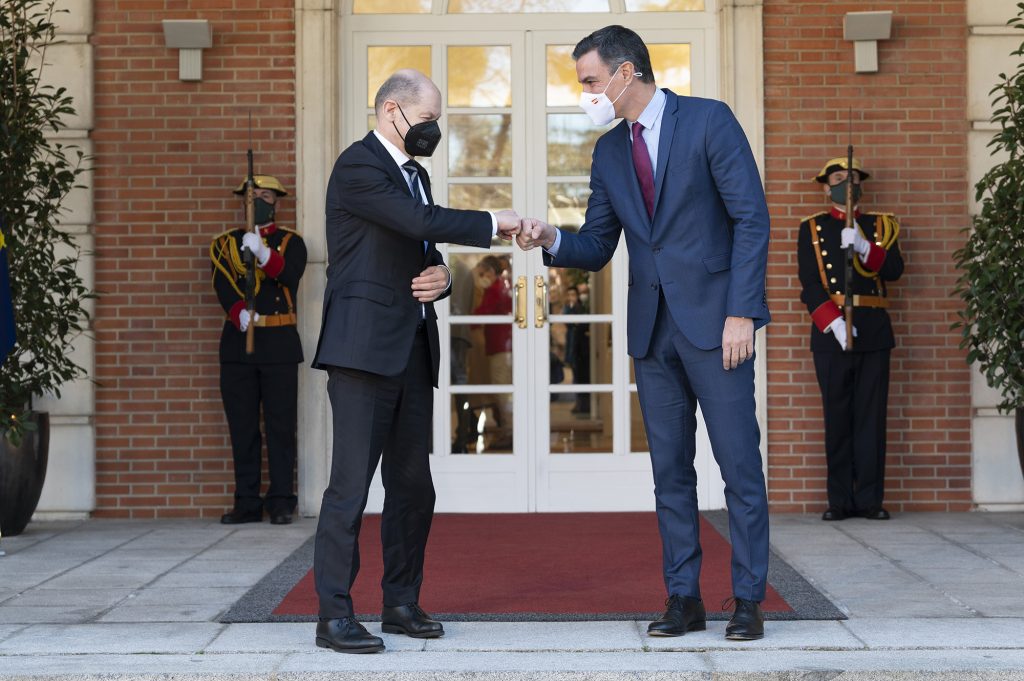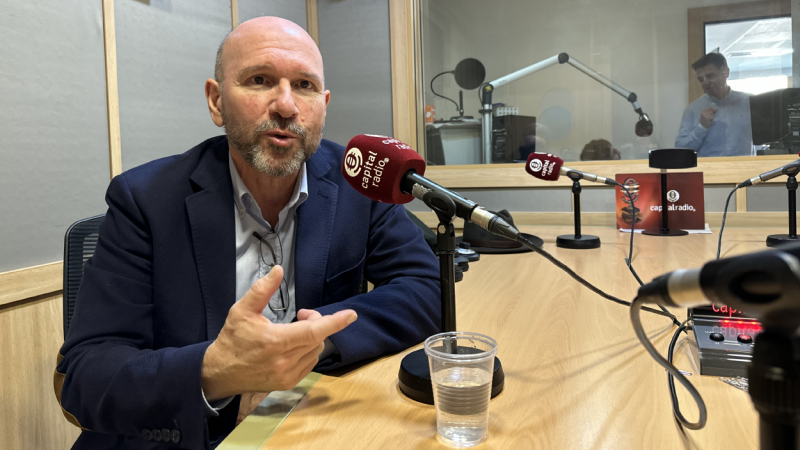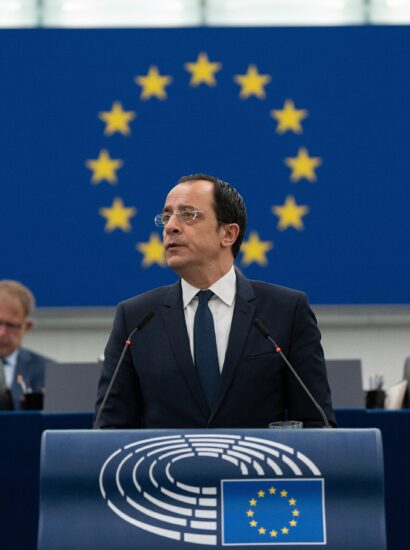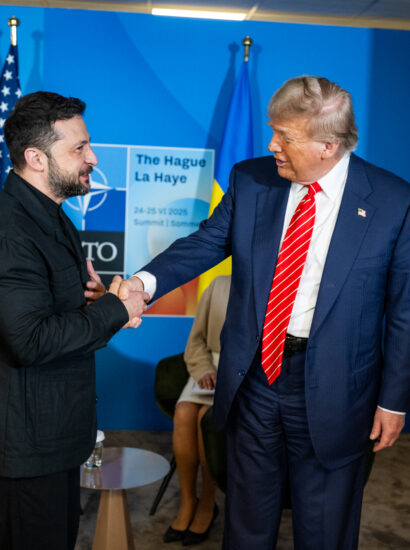The conflict between Israel and Hamas has provoked massive reactions around the world. Some have been astonished, others had seen it coming. Hundreds of thousands of people in the West have joined the discourse, especially second and third generation immigrants in Europe. In fact, in the most reputable universities such as Harvard, the majority of students are against Israel.
The Israeli-Palestinian conflict has a long history. Taking a stand is sometimes difficult. However, one thing that the entire European Union and the West have done was to close ranks in support of Israel to counter Hamas for the terrorist acts committed by the latter.
In Spain, however, the official position, although theoretically supportive of Israel, and the statements of President Pedro Sanchez and the statements of his ministers have not sat well.
In fact, these statements were greeted with thanks from Hamas. For this reason, I have decided to interview Oscar Vara. Vara holds a PhD in Fundamentals of Economic Analysis and is a professor in the Faculty of Economics and Business Administration at the Universidad Autónoma de Madrid.
To put readers in context, what is the government configuration in Spain?
In Spain there is a coalition government between the Spanish Socialist Workers’ Party and the Sumar party, which unites the Communist Party with left-wing and environmentalist parties.
What is the official position of the Spanish government on the conflict between Israel and Hamas?
The Spanish government has repeated on several occasions that its position is similar to that of the European Commission.
That is to say, the Spanish government recognizes Israel’s right to defend itself against terrorist aggression, especially when they are as serious and abhorrent as the one Israel suffered on October 7, but demands that Israel respects international law and international humanitarian law with regard to the protection of Palestinian civilians in the Gaza Strip who, as a matter of principle, cannot be held responsible for the actions of Hamas.
Many members of the SUMAR formation have denounced what they claim is the “genocide” being perpetrated by Netanyahu. Does this position harm the Spanish government?
The Sumar group is, in itself, the coalition of various left-wing parties of the extreme left and, in Spain, these movements have always been very close to the Palestinian cause which, in its origin, had as protagonist many movements close to Marxism.
For example, the Democratic Front for the Liberation of Palestine, a Marxist-Leninist movement, is part of the Palestinian Liberation Organization, being the second in importance after the Palestinian National Liberation Movement better known as Fatah.
Pedro Sanchez, President of the Spanish government, made some statements when he visited Israel that did not please Netanyahu. Can you explain what words he said and in what tone? Why do you think this might have angered the Israeli executive?
President Pedro Sánchez’s visit to Israel had two moments in terms of statements: firstly, the meeting he held with Israeli Prime Minister Netanyahu in which he expressed a position similar to that expressed by the High Representative for External Relations of the European Union, Josep Borrell. And, secondly, the press conference he held in Egypt, specifically, in front of the Rafah crossing, and together with the Prime Minister of Belgium. In front of Netanyahu, I believe that the President remained within the lines of courtesy required by diplomacy, even if the message was not the one the Israeli Prime Minister wished to hear.
But in Egypt, the Spanish president, in a written statement, spoke of indiscriminate Israeli bombardment resulting in the killing of Palestinian children in Gaza. This statement clearly offended the Israelis because it was far from being diplomatic and because it was a direct criticism of the way in which the Israeli military offensive in Gaza has been conducted. It is difficult to explain the reasons why the Spanish President decided to make these statements using these particular expressions.
It may be attributed to a domestic political reason, since he is competing for the same electoral space today with those who now form the coalition government.
It may also be due to the fact that Morocco spied on the Spanish President’s phone with the Israeli patented PEGASUS program, which the private Israeli company NSO Group sells with the authorization of the Israeli government.
Israel temporarily recalled its ambassador to Spain. Was it because of Sánchez’s statements? If so, how long do you think it will last?
The recall of the Israeli ambassador to Spain for consultations is a particularly serious act in diplomatic terms and, in fact, today usually precedes the complete rupture of relations between the countries.
The Israeli government was offended to that extent by the Spanish president’s statement.
Santiago Abascal, leader of Vox (third force in Spain), recently visited Israel. Amichai Chikli, Minister of Diaspora and the Fight against Anti-Semitism, said that Abascal was an exceptional leader and that he appreciated his visit. Do you think this can help diplomatic reconciliation?
The Spanish Socialist Workers’ Party tries to maintain a position as far away as possible from the Vox party, which it describes as an extreme right-wing party that is in its ideological antipodes. I doubt that the PSOE would want to be helped by Vox either by its action or omission.
Do you believe that Spain has adopted a different position from the European Union?
Honestly, I don’t think President Sanchez has dissociated himself from the position of the European Commission or European countries such as France and Germany. French President Emmanuel Macron asked Israel for a firm but fair response and advocated the two-state solution, as did Sanchez, and stated the right of Israel to self-defense and for the Palestinians to live in their own state. German Chancellor Olaf Scholz has been, among the European leaders, the one who has supported Israel the most and has defended that Hamas must be dismantled and must disappear, but as a prerequisite step to the creation of a Palestinian State.

Spanish President Pedro Sanchez and German Chancellor Olaf Scholz at a bilateral meeting in 2022 (Photo: La Moncloa / Flickr.com)
Finally, as an expert in geopolitics, how do you think the conflict between Israel and Hamas will end?
In my opinion, it is an unsolvable conflict. The moment of its solution seems to have passed. The failure of the Oslo Accords has allowed the most radicals to impose their positions among both Israelis and Palestinians.
The war in Gaza will end and Israel will have to control it politically, which will have a high political cost. But, the conflict will remain latent until the opportunity for a new confrontation arises.








[…] and incredibly detrimental role in the country. We shouldn’t understate the importance of the Israeli lobby and interests in […]